Pakistan’s Constitution is a national-level social contract and in the light of Islamic teachings every Pakistani is bound to abide by it. National-level disputes and conflicts, which are shared by all and not linked to certain religious sect or community, should be settled through the majority opinion. A minority cannot be granted the right to impose its opinion on majority. Same principle would apply to interpretation and exegesis of Shariah that would be the prerogative of the elected parliamentarians. Those who believe in the establishment of Islam through the use of force and non-democratic means should be engaged in academic and intellectual dialogue with Pakistan’s prominent religious scholars and experts of Islamic law on Islam’s fundamental concepts of jihad, state, legislation and establishment of religion etc.
These were some of the recommendations that emerged during a one-day structured dialogue among Pakistan’s leading religious scholars titled “Democracy and constitution of Pakistan: viewpoints of clergy and religious scholars (IV).” Organized by Pak Institute for Peace Studies in Islamabad on December 22, 2014, this was the fourth and last of a series of dialogues held on the subject to seek academic and legal opinions of religious scholars and leaders on Islam’s link to Pakistan’s Constitution and democracy.
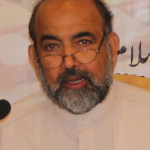 Vice Chancellor of Islamia College University Dr. Qibla Ayaz discussed the similarities between democratic and Islamic forms of government. He emphasized that early Islam’s systems of shuraiyyat and caliphate are similar to democracy as in all three people choose their representative through vote. Talking about the current situation in Pakistan, he stated that dealing with Islamist militant organizations, which do not acknowledge the constitution and democracy, is a big challenge for the state.
Vice Chancellor of Islamia College University Dr. Qibla Ayaz discussed the similarities between democratic and Islamic forms of government. He emphasized that early Islam’s systems of shuraiyyat and caliphate are similar to democracy as in all three people choose their representative through vote. Talking about the current situation in Pakistan, he stated that dealing with Islamist militant organizations, which do not acknowledge the constitution and democracy, is a big challenge for the state.
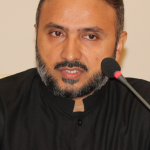 Sahibzada Amanat Rasool, principal Idara Fikr-e-Jadeed, stated that Islam promotes freedom of thought especially in matters pertaining to political affairs. With militant organizations forcing their beliefs on others through violent means, it has become more and more important to understand and spread awareness about how Islam perceives democracy. He said that there is a need to encourage intellectual and philosophical debate in Pakistan on development models of the west, learn from them and apply them in our own country.
Sahibzada Amanat Rasool, principal Idara Fikr-e-Jadeed, stated that Islam promotes freedom of thought especially in matters pertaining to political affairs. With militant organizations forcing their beliefs on others through violent means, it has become more and more important to understand and spread awareness about how Islam perceives democracy. He said that there is a need to encourage intellectual and philosophical debate in Pakistan on development models of the west, learn from them and apply them in our own country.
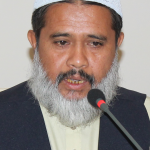 Member of Jammat-e-Islami’s Advisory Council Maulana Abdul Haq Hashmi said democracy is often perceived as a western idea even though its fundamentals have a direct correlation with the teachings of Quran. Muslims were the first to introduce democracy by choosing their leaders with consultation. Democracy is a fluid concept and can be moulded to keep it relevant to certain geographical and socio-cultural settings. The supremacy of constitution needs to be respected for democracy to sustain and prevail in Pakistani society.
Member of Jammat-e-Islami’s Advisory Council Maulana Abdul Haq Hashmi said democracy is often perceived as a western idea even though its fundamentals have a direct correlation with the teachings of Quran. Muslims were the first to introduce democracy by choosing their leaders with consultation. Democracy is a fluid concept and can be moulded to keep it relevant to certain geographical and socio-cultural settings. The supremacy of constitution needs to be respected for democracy to sustain and prevail in Pakistani society.
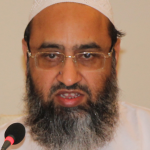 Vice Principal Jamia Imdadia, Faisalabad Mufti Mohammad Zahid stated that even though large segments of the population accept the constitution, they lack the required education and training to display this belief in their practices. He said constitution is not a rigid framework and there is room for amendments for the betterment of society but recognizing its supremacy is vital for democratic process to sustain.
Vice Principal Jamia Imdadia, Faisalabad Mufti Mohammad Zahid stated that even though large segments of the population accept the constitution, they lack the required education and training to display this belief in their practices. He said constitution is not a rigid framework and there is room for amendments for the betterment of society but recognizing its supremacy is vital for democratic process to sustain.
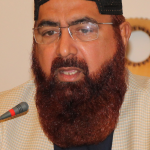 Secretary General Wafaqul Madaris Salfia Maulana Yaseen Zafar underscored the need to bring in reforms in the electoral process to ensure that true representatives of people come into power. He said education and the power to decide between wrong and right could make people’s right to vote more powerful.
Secretary General Wafaqul Madaris Salfia Maulana Yaseen Zafar underscored the need to bring in reforms in the electoral process to ensure that true representatives of people come into power. He said education and the power to decide between wrong and right could make people’s right to vote more powerful.
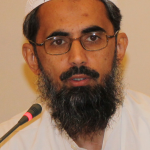 Deputy Director Al Shariah Academy, Gujranwala Maulana Ammar Khan Nasir stated that militant organizations reject democracy saying it is a western concept. Ideas like these come up when people see things in black and white. Therefore there is a need to better understand these concepts and promote intellectual and philosophical thinking among people. Moreover, concepts such as “Jihad” need to be better understood with its specific conditions and implications for it to be followed correctly.
Deputy Director Al Shariah Academy, Gujranwala Maulana Ammar Khan Nasir stated that militant organizations reject democracy saying it is a western concept. Ideas like these come up when people see things in black and white. Therefore there is a need to better understand these concepts and promote intellectual and philosophical thinking among people. Moreover, concepts such as “Jihad” need to be better understood with its specific conditions and implications for it to be followed correctly.
A set of 14 unanimous recommendations that emerged during the dialogue are listed below:
1. Sovereignty belongs to Allah. In a Muslim state no law can be formed that is contradictory to Islamic law or Shariah. However, in matters pertaining to Ijtehad–which is one of the key sources of Islamic law and entails intellectual effort to derive appropriate legislation from the Quran and Sunnah for novel cases –legislation can be done through collective wisdom intellectual exercise. That implies that the concept of legislature is not against Islam.
2. The concept of political system espoused in Islam is based on the concept of consultation (Shuraiyyat). The concept of monarchy and dictatorship are against Islam.
3. Islamic law does not provide a fixed way to elect the ruler of a Muslim state. However he should have trust of his people.
4. In view of Islam, election of a ruler should be based on the attributes of faith, good deeds, ability and honesty. Articles 62 and 63 of Pakistan’s Constitution also guarantee that. Emerging suggestions, options and means for electoral reforms should be debated at national level that should also include a debate on alternative options such as proportionate representation.
5. National-level disputes and conflicts, which are shared by all and not linked to certain religious sect or community, should be settled through the majority opinion. A minority cannot be granted the right to impose its opinion on majority. Same principle would apply to interpretation and exegesis of Shariah that would be the prerogative of the elected parliamentarians.
6. Though Islam does not forbid establishment of political parties but it insists that the purposes of opposition to or criticism of a government should be improvement in governance, protection of human rights and public welfare.
7. Pakistan’s Constitution is an Islamic constitution that was prepared with the help and support of Islamic scholars and leaders. The Objectives Resolution guarantees that laws in Pakistan would be in accordance with Islam.
8. Besides the assurances and guarantees provided in the constitution, certain un-Islamic practices could not be practically removed from the state affairs. Governments should ensure a true implementation of the constitution that would also help address some emerging negative behaviours in the country.
9. Recommendations by the Council of Islamic Ideology to reform Pakistan’s laws in the light of Shariah should be reviewed and rigorously debated in the parliament.
10. Pakistan’s Constitution is a national-level social contract and in the light of Islamic teachings every Pakistani is bound to abide by it.
11. Propagation of un-Islamic concepts and practices should be discouraged to eradicate faith-based violence.
12. Democracy in a Muslim country should conform to values and obligations of Islam. The West should take care of religious and socio-cultural sensitivities of Muslim societies.
13. Ambiguities exist among different segments of Pakistani society with regard to priorities of an ideological Islamic state and a nation-state that should only be addressed through academic and legal debates.
14. Those who believe in the establishment of Islam through the use of force and non-democratic means should be engaged in academic and intellectual dialogue with Pakistan’s prominent religious scholars and experts of Islamic law on Islam’s fundamental concepts of jihad, state, legislation and establishment of religion etc.

